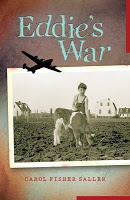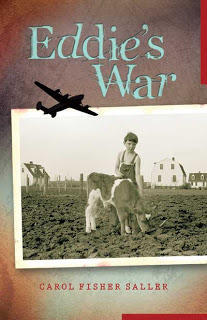Clifford Garstang's Blog, page 125
August 2, 2011
Anis Shivani: What Makes the Short Story Distinctive? Writers Discuss the Story vs. the Novel
 Anis Shivani: What Makes the Short Story Distinctive? Writers Discuss the Story vs. the Novel
Anis Shivani: What Makes the Short Story Distinctive? Writers Discuss the Story vs. the NovelIn a recent Huffington Post piece, Anis Shivani asks a number of writers "What Makes the Short Story Distinctive?" I'm one of those writers, although I don't think my answer was particularly insightful. Still, Anis was kind enough to include me and also embedded the video of my lecture on linked story collections from last year.
Published on August 02, 2011 07:12
August 1, 2011
Rejection Wiki
 Rejection Wiki
Rejection WikiNow, this is something useful. Did you ever get a rejection from a magazine and wonder if was personalized or was just their standard blather? Wonder no more! Or, at least, wonder a little less. Check the Rejection Wiki and compare your rejection to others received from the magazine. Very handy, I think, for the occasional tea-leaf reading.
Published on August 01, 2011 07:44
Eddie's War by Carol Saller Debuts Today
 - Eddie's War
- Eddie's WarToday is publication day for Eddie's War
 , the new book by Carol Saller. Congratulations, Carol!
, the new book by Carol Saller. Congratulations, Carol!For more about the book, see my review here. And there's a review in Prime Number Magazine here. And be sure and visit Carol's website.
Published on August 01, 2011 07:05
July 28, 2011
The New Yorker: "Reverting to a Wild State" by Justin Torres

August 1, 2011: "Reverting to a Wild State" by Justin Torres
There's a lot to like about this story, starting with its innovative structure. It's made up of 4 sections, moving backward in time (3, 2, 1, 0). The narrator as a 19 year old, in the last section, has just become involved with Nigel, and the two are embarking on a summer adventure—working on a small farm in Virginia. In the third scene, but second chronologically, Nigel worries that the narrator is breaking up with him, and the narrator is revealed to be flawed (but then we KNEW that from the first scene, which is last chronologically). But no need to summarize the whole thing—it's short, and it's available to read for free, so please do. It doesn't feel particularly deep—it's essentially about a gay man who isn't able to hold onto something good—but still, it's a good piece.
I was afraid that it was an excerpt, since Torres has a novel coming out later this year, but judging by the very interesting interview conducted by Willing Davidson it's not. I find it interesting that Torres talks about the autobiographical nature of his writing, but then says that the characters are composites. I'd say this is true for most writers, whether they admit it or not.
Published on July 28, 2011 10:47
July 27, 2011
Writing Fiction: From Idea to Story
 I'll be teaching a creative writing class this fall in Blue Ridge Community College's Workforce Services and Continuing Education Division: Writing Fiction: From Idea to Story. The course description is on page 22 of the .pdf brochure.
I'll be teaching a creative writing class this fall in Blue Ridge Community College's Workforce Services and Continuing Education Division: Writing Fiction: From Idea to Story. The course description is on page 22 of the .pdf brochure.The class, which meets at BRCC's Plecker Center on four consecutive Tuesdays from 6:30-8:30 pm, beginning September 13, will explore fiction fundamentals and will also look at some of the great short stories of American and world literature. If you've wanted to write fiction but didn't know where to start, here's a great opportunity.
Published on July 27, 2011 15:33
July 26, 2011
Man Booker Prize 2011 longlist announced: Man Booker Prize news
 Man Booker Prize 2011 longlist announced: Man Booker Prize news
Man Booker Prize 2011 longlist announced: Man Booker Prize newsAlas, I've read none of these. I haven't even HEARD of these books.
Julian Barnes The Sense of an Ending (Jonathan Cape - Random House)
Sebastian Barry On Canaan's Side (Faber)
Carol Birch Jamrach's Menagerie (Canongate Books)
Patrick deWitt The Sisters Brothers (Granta)
Esi Edugyan Half Blood Blues (Serpent's Tail - Profile)
Yvvette Edwards A Cupboard Full of Coats (Oneworld)
Alan Hollinghurst The Stranger's Child (Picador - Pan Macmillan)
Stephen Kelman Pigeon English (Bloomsbury)
Patrick McGuinness The Last Hundred Days (Seren Books)
A.D. Miller Snowdrops (Atlantic)
Alison Pick Far to Go (Headline Review)
Jane Rogers The Testament of Jessie Lamb (Sandstone Press)
D.J. Taylor Derby Day (Chatto & Windus - Random House)
Published on July 26, 2011 10:26
Sewanee Writers' Conference
 The Sewanee Writers' Conference begins today in Sewanee, TN. I wish I were there! I remember the excitement of driving to the University of the South--about an 8-hour trip for me--and arriving in the afternoon to check in and get settled into the dorm, then running into old friends, assembling for the first dinner and the first reading (I hear that Jill McCorkle is kicking things off tonight).
The Sewanee Writers' Conference begins today in Sewanee, TN. I wish I were there! I remember the excitement of driving to the University of the South--about an 8-hour trip for me--and arriving in the afternoon to check in and get settled into the dorm, then running into old friends, assembling for the first dinner and the first reading (I hear that Jill McCorkle is kicking things off tonight).I hope everyone has a great time. I'm sure you will!
Published on July 26, 2011 07:48
July 25, 2011
VCCA France is a go!
 Photo by Richard McCord, from VCCA websiteThe last several days have been hectic. Midweek I learned that I might be getting a residency at VCCA's facilities in France: Moulin à Nef, in the village of Auvillar. Trying to make that happen was stressful--the residency available was almost 4 weeks, and adding in travel would have been almost a month. That's a long time to be away--from the garden, the dog, the house, other responsibilities (which is the POINT of a residency, of course, but the thought of it was a little overwhelming). So I said no. But then the next day a much shorter residency opened up because of a cancellation and I grabbed it. Then it turned out I have a possible house-sitter (and dog-sitter), so I could be away for a couple of weeks without worrying too much.
Photo by Richard McCord, from VCCA websiteThe last several days have been hectic. Midweek I learned that I might be getting a residency at VCCA's facilities in France: Moulin à Nef, in the village of Auvillar. Trying to make that happen was stressful--the residency available was almost 4 weeks, and adding in travel would have been almost a month. That's a long time to be away--from the garden, the dog, the house, other responsibilities (which is the POINT of a residency, of course, but the thought of it was a little overwhelming). So I said no. But then the next day a much shorter residency opened up because of a cancellation and I grabbed it. Then it turned out I have a possible house-sitter (and dog-sitter), so I could be away for a couple of weeks without worrying too much.So that much was decided by Thursday night. On Friday I headed to Chicago for my niece's wedding--although there were some horrific storms during the weekend, none of them disrupted any of the festivities, some of which--including the ceremony--were outside. Lots of fun, and I met lots of family and friends of my new nephew-in-law.
Today I've booked a flight (I decided to skip Paris on this trip, as much as I enjoy it) direct to Toulouse, where I'll explore for a few days before going to to Auvillar. I even booked a hotel. Really the last bit will be to figure out the train schedule from Toulouse to the nearest train station and book that. And then I'll be [mostly] all set!
Published on July 25, 2011 12:36
July 20, 2011
"The Open Book" in the new LITnIMAGE
Published on July 20, 2011 11:06
Book Review: Eddie's War, by Carol Fisher Saller

Eddie's War
Carol Fisher Saller
What a pleasure this was to read! Eddie's War is aimed at young readers (age 10 and up), and so it doesn't offer all the complexities of plot, language, and character that books for adults often have, but that doesn't diminish the pleasurable experience of reading about charming young Eddie and the tribulations of growing up in Ellisville, Illinois on the eve of World War II.
Eddie is the younger son of Wynton and May Carl, who live on a farm in Central Illinois not far from the farm of Wynton's parents. A smart boy, Eddie begins reading the newspapers in the town library and befriends Jozef Mirga, an older man who is looking for news about his home town in Poland. Soon Eddie is following closely the events in Europe and learns about the Nazis and their conquests. He is outraged, and advocates for America's entry into the war: "Why shouldn't we fight? We help our neighbors—it's the same, right?" Others aren't so sure, and wonder if the risk is worth it.
But when Japan attacks Pearl Harbor, the doubt is gone, and local boys volunteer to fight, including Thomas, Eddie's older brother. Saller portrays Thomas as a nearly ideal older brother, and Eddie's love and admiration are demonstrated in his letters and also in his fears for Thomas's safety, heightened when another local boy is killed at Normandy. The war has other impacts in Ellisville, too. Eddie's budding romance with Sarah Mulberry is disrupted when he sees her kissing Private Deylon Reevy as he's about to ship out. And Jozef Mirga—a gypsy whose family in Poland is at risk—comes under suspicion when there is a mysterious fire.
These aren't the only challenges Eddie has to deal with—he stumbles upon a family secret, for example, that helps him understand his father and grandfather's relationship—and Saller has done a masterful job of weaving all of these threads into a remarkable tapestry.
The book is told in a series of very short stories written in verse, each with its own title and date, many of which could stand alone, but also fit seamlessly into the whole. And while the book is definitely fiction, Saller discloses on her website that many of the short stories were inspired by her own father's diary from that era, and from letters that he wrote to his older brother at war.
A great deal of this book's warmth derives from the character of Eddie himself. He's a good kid—respectful to his elders, kind to old Jozef, a lover of animals (except snakes)—and his sensibilities and good instincts evolve over the course of the book. Early on he has a conversation with his brother's friend Gabe: "I read about this guy over t' Henry County, busted a killer out of jail, hung him from a tree." Eddie doesn't understand the fuss, since the killer would have been hanged anyway, but Gabe teaches him about justice and the rule of law, a lesson that stays with Eddie when old Jozef is arrested.
This is a great young people's book that all of us can enjoy.
Published on July 20, 2011 07:12




